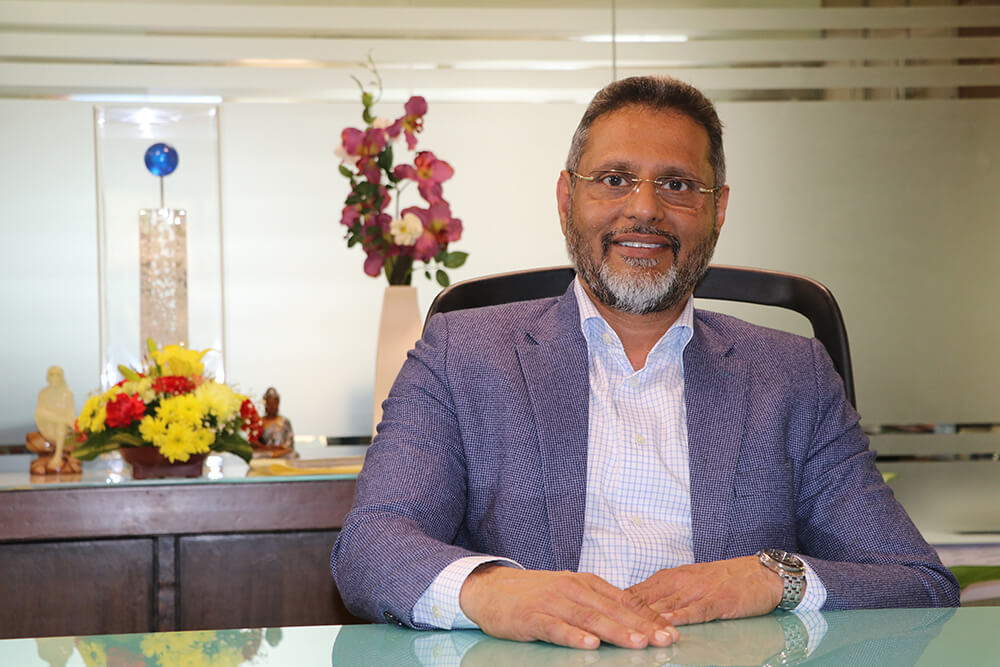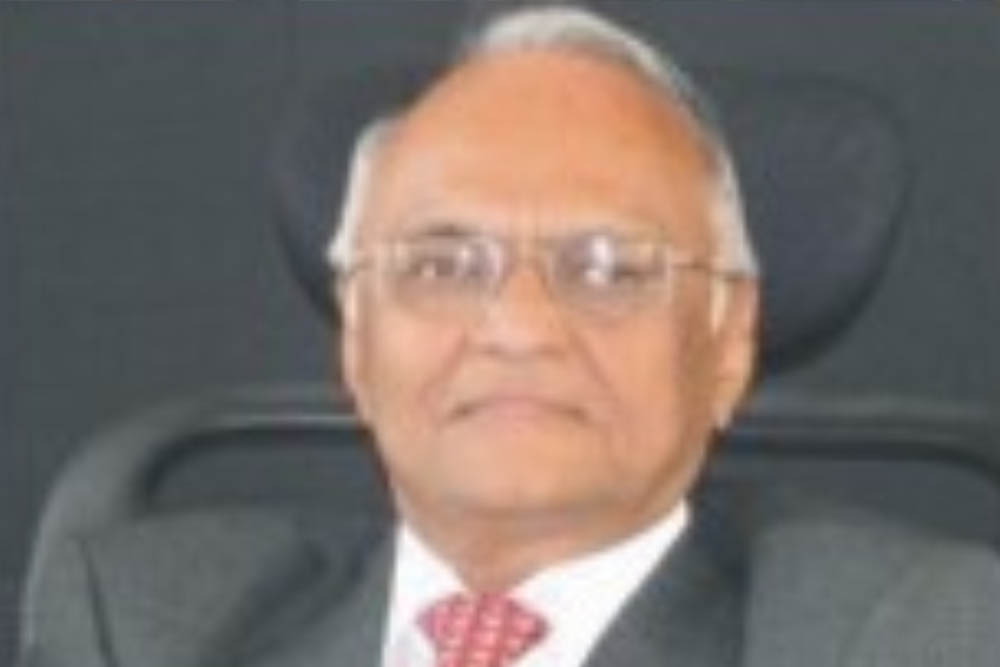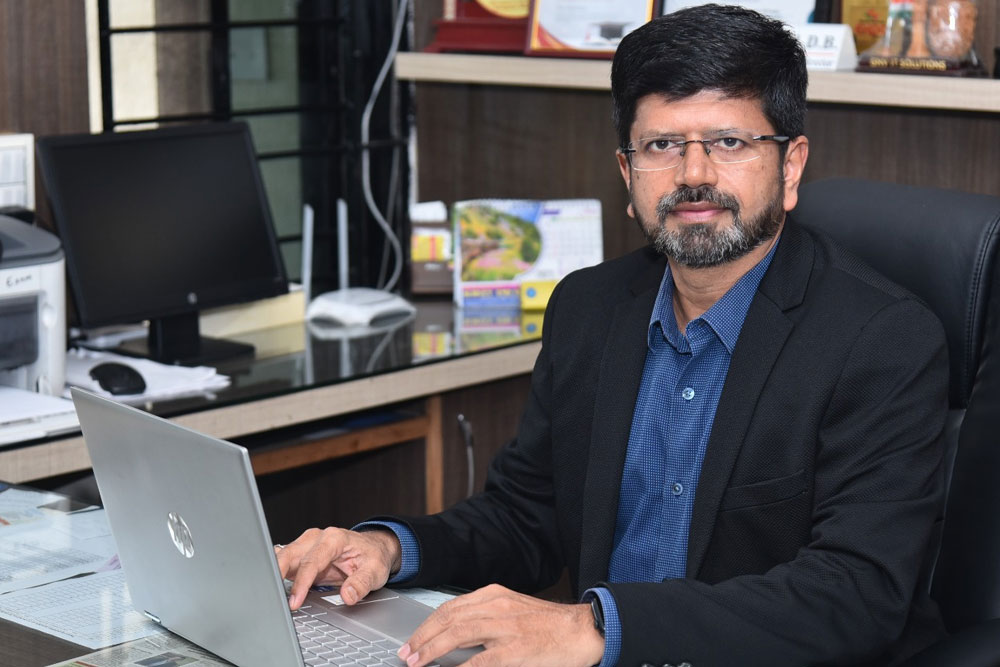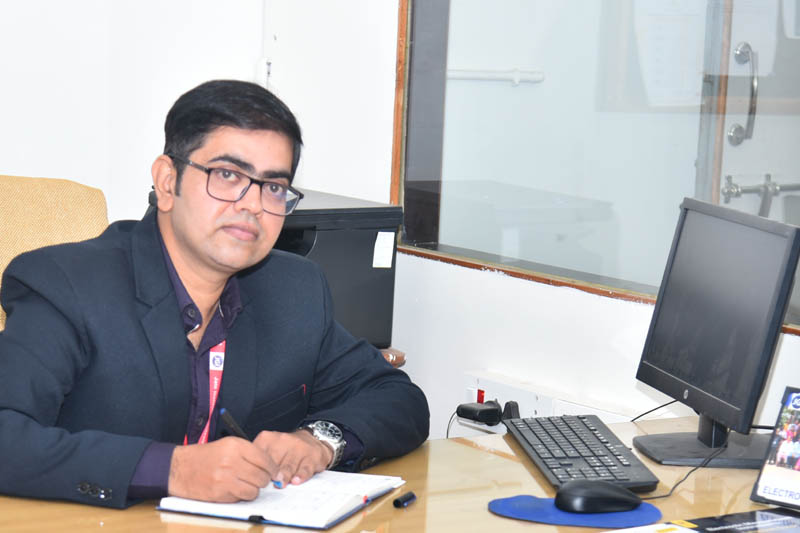 Dr. Chenraj Roychand
Dr. Chenraj Roychand A distinguished Indian educationist, entrepreneur, angel investor and philanthropist with over 40 years of experience...
 Dr. Chenraj Roychand
Dr. Chenraj Roychand  Sri. Achalchand Jain
Sri. Achalchand Jain  Dr. Ganesh D. B.
Dr. Ganesh D. B.  Master of Business Administration (MBA)
Master of Business Administration (MBA)
 Master of Business Administration (MBA) - 120
Master of Business Administration (MBA) - 120
The Department of Electronics and Communication Engineering (ECE) was established in 2011 with an initial intake of 60 students. Responding to growing demand and academic excellence, the intake was increased to 120 in the academic year 2023–24 and further expanded to 180 in 2024–25.
The Department is equipped with modern infrastructure, state-of-the-art laboratories, and a team of highly qualified teaching and non-teaching staff. It follows Outcome-Based Education (OBE) to ensure continuous improvement in the teaching–learning process.
The Department is NBA accredited (valid up to 30-06-2026), and the institution holds NAAC A+ accreditation, reflecting high standards in academic quality and governance.
The faculty actively contribute to research through publications in peer-reviewed journals, patent filings, and funded projects. The Department has received grants from reputed funding agencies such as VGST, KSCST, MSME, AICTE and others. Notably, a ₹40 lakh grant under the VGST Grants for Research Excellence scheme (2024–25) has strengthened the research ecosystem.
Recognized as a VTU Research Centre (VTU Belagavi), the Department currently hosts 13 Ph.D. research scholars and has 5 VTU-recognized research supervisors, fostering a strong research culture.
The Department has signed 11 MoUs with reputed industries to enhance industry–academia collaboration. Through the student forum ENCORE, it regularly conducts workshops, training programs, and hands-on sessions. Several MoU partners also provide internship and placement opportunities for students.
The Department offers advanced learning and research opportunities in Signal Processing, VLSI Design, Embedded Systems, Wireless Technology, Microwave Engineering, Optical Communication, Microelectronics, Control Systems.
To enhance technical skills and professional competence, the Department actively organizes technical symposiums, expert lectures, workshops, and conferences. These activities are supported by the IEEE Student Branch, part of the world’s largest professional technical organization.

| Degree | Programme | Year | Intake |
|---|---|---|---|
| UG | BE in Electronics & Communication Engineering | 2024-25 | 180 |
| 2023-24 | 120 | ||
| 2011-2023 | 60 |
Endeavors to achieve academic excellence by providing value based education to meet the ever changing needs of the society
MISSIONM1: To emphasize on student focus learning environment
M2: To prepare graduates who surpass in the engineering career, qualified to acquire technical knowledge & ethical values.
M3: To provide a platform to inculcate team spirit & leadership qualities to succeed in professional careers.
PSO1: Analyze, simulate and design electronic and communication circuits for given specifications.
PSO2: Design and test processor based systems
PEO1: To create graduates with a strong base in Electronics & Communication Engineering.
PEO2: To produce technically competent graduates with the ability to understand, analyze & develop electronic systems.
PEO3: Ability to work with professional ethics and as a team member to realize the goals of the projects.
PEO4: Excellence in professional career by attaining higher education.
1. Engineering knowledge: Apply the knowledge of mathematics, science, engineering fundamentals, and computer science and engineering to the solution of complex engineering problems.
2. Problem analysis: Identify, formulate, review research literature, and analyze complex computer engineering problems reaching substantiated conclusions using first principles of mathematics, natural sciences, and engineering sciences.
3. Design/development of solutions: Design solutions for complex computer engineering problems and design system components or processes that meet the specified needs with appropriate consideration for the public health and safety, and the cultural, societal, and environmental considerations.
4. Conduct investigations of complex problems: Use research-based knowledge and research methods including design of experiments, analysis and interpretation of data, and synthesis of the information to provide valid conclusions.
5. Modern tool usage: Create, select, and apply appropriate techniques, resources, and modern computer engineering and IT tools including prediction and modelling complex computer engineering activities with an understanding of the limitations.
6. The engineer and society: Apply reasoning informed by the contextual knowledge to assess societal, health, safety, legal and cultural issues and the consequent responsibilities relevant to the professional engineering practice.
7. Environment and sustainability: Understand the impact of the professional computer engineering solutions in societal and environmental contexts, and demonstrate the knowledge of, and need for sustainable development.
8. Ethics: Apply ethical principles and commit to professional ethics and responsibilities and norms of the computer engineering practice.
9. Individual and team work: Function effectively as an individual, and as member or leader in diverse teams, and in multidisciplinary settings.
10. Communication: Communicate effectively on complex computer engineering activities with the engineering community and with society at large, such as, being able to comprehend and write effective reports and design documentation, make effective presentations, and give and receive clear instructions.
11. Project management and finance: Demonstrate knowledge and understanding of the computer engineering and management principles and apply these to one’s own work, as a member and leader in a team, to manage projects and in multidisciplinary environments.
12. Life-long learning: Recognize the need for, and have the preparation and ability to engage in independent and life-long learning in the broadest context of technological change.
| Sl No | Document | View |
|---|---|---|
| 1 | Course Outcomes | Click here to view |

Dr. Santosh Herur
Professor and HoD,
Department of Electronics & Communication Engineering
Jain Institute of Technology, Davangere
Email: santoshherur@jitd.in
